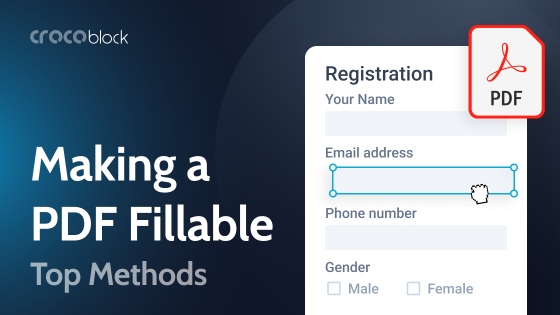Shopify vs. WordPress WooCommerce: which is best for running an online store? Both are excellent options and can provide you with a professional-looking online store. However, each has its advantages.
Which one you choose depends on what is more important to you. For example, if you are a beginner who wants all the technical aspects taken care of, Shopify is the best choice because it is quick and easy to set up. However, if you are an experienced WordPress website owner, you might prefer WooCommerce, particularly if you want to save money.
Let’s dive in.
Table of Contents
- WooCommerce vs. Shopify: a Quick Comparison
- Setup Time and Ease of Use
- Available Store Designs
- Add-ons and Plugins
- Sales and Marketing Features
- Transaction Fees and Payment Options
- Security
- SEO (Search Engine Optimization)
- Customer Support
- Cost
- WooCommerce vs. Shopify: Which Should You Choose?
WooCommerce vs. Shopify: a Quick Comparison
| WooCommerce | Shopify | |
|---|---|---|
| Setup Time and Ease of Use | ✔️ | |
| Available Store Designs | ✔️ | ✔️ |
| Add-ons and Plugins | ✔️ | |
| Sales and Marketing Features | ✔️ | |
| Transaction Fees and Payment Options | ✔️ | |
| SEO | ✔️ | ✔️ |
| Customer Support | ✔️ | ✔️ |
| Cost | ✔️ |
Setup Time and Ease of Use
Are you experienced with websites and willing to take the time to play around with settings? Or are you looking for a done-for-you system that can get your online store up and running quickly with minimal fuss? Let’s take a look at how these two compare in this regard.
WooCommerce
WooCommerce is a WordPress plugin, so you must set up a WordPress website before using it. This means buying a domain name and web hosting, setting up your website properly, and installing and configuring WooCommerce. This can take some time to get done correctly, so you won’t have your store up and running immediately.
Sure, WooCommerce does have a step-by-step guide showing you how to set it up. But it’s still up to you to make sure it’s all set up correctly, and it may not be the best option for complete beginners as it has a steep learning curve.
Shopify
With Shopify, everything is provided for you with minimal setup required. You don’t need to have an existing website or any particular technical knowledge. They provide web hosting and cover all the technical aspects behind the scenes. You need to decide on your online store style and fill it with your content and products.
🏆 Winner: Shopify
Shopify is the ideal solution for beginners, non-technical people, or anyone who wants to set up an online store quickly and easily.
Available Store Designs
When creating an online store, it’s natural to want it to look good and have control over its design and feel. Both WooCommerce and Shopify offer a range of designs to choose from, but which one provides the most options?
WooCommerce
If you search WordPress.org for WooCommerce themes, there are over 1,600 available. That’s a lot to choose from! And many of them look nice! Some of these themes will be completely free, too. Plus, you will have more room for customization with a dynamic WooCommerce template, like our Zolden.
Shopify
Shopify does not have as many themes as WooCommerce – 126 when writing this. Some are free, whereas many will typically cost you about $300.
However, these themes are expertly created to make the most out of your online store, so there is a higher quality control than with the WooCommerce themes. This makes Shopify ideal for those who want a professional-looking store set up quickly and easily.
🏆 Winner: both
WooCommerce provides a wider range of themes and more customization, but Shopify has better quality control over its themes, so you’re more likely to get an awesome-looking store no matter which theme you choose.
Add-ons and Plugins
Setting up your basic store is one thing, but what add-ons are available to extend its functionality? Both WooCommerce and Shopify provide various extensions, but which platform offers more?
WooCommerce
When writing this, there are 803 WooCommerce extensions on the WooCommerce website. However, only 68 of them were developed by Woo. If you search for “WooCommerce” in the plugins section of WordPress.org, you will find hundreds of plugins available, but not all of them will be of excellent quality, so you will need to do your research before installing them.
For instance, with JetWooBuilder, you create the needed layout, cart pages, thank you pages, and more:
Shopify
Shopify has a staggering variety of apps – 8,000, according to its apps website. These have all been tried, tested, and vetted to ensure top quality. You can also receive app recommendations based on what has previously worked well for businesses similar to yours.
🏆 Winner: Shopify
Shopify is the clear winner here, with many apps available, all of which have been vetted.
Sales and Marketing Features
Of course, both platforms enable you to set up an online store and sell products, and both can be extended further with plugins and apps. But which has the best e-commerce features right out of the box?
WooCommerce
Abandoned cart recovery is an essential part of any online store. It enables you to automatically send emails to customers who abandon their carts partway through shopping in your store, thus saving many sales that you would have otherwise lost. Unfortunately, WooCommerce does not have this feature as standard, although various additional plugins can add it.
Another helpful feature is the ability to sell on other channels, such as eBay, Amazon, Facebook, and Instagram. Unfortunately, to do this on WooCommerce, you need to add extensions, and they all cost significant money except for the Facebook extension.
Shipping is another important consideration, but with WooCommerce, you have to pay for shipping extensions to handle carrier services such as UPS, FedEx, and Canada Post.
Regarding email marketing, WooCommerce has various extensions that enable you to integrate with multiple email marketing services. However, this function does not come as standard.
Shopify
Shopify is optimized for selling right out of the box. For example, it includes abandoned cart recovery as standard, so you don’t need to worry about losing sales. Additionally, if you want to integrate your store with eBay, Amazon, Facebook, and Instagram, you can easily do so without paying extra.
When it comes to shipping, Shopify wins again due to its built-in partnerships with SPS, DHL Express, UPS, and Canada Post. Shopify is also great for dropshipping, although you will need to install an app to do that.
Regarding email marketing, the situation is similar to WooCommerce in that you will need to install an app to integrate with an email marketing service.
🏆 Winner: Shopify
Shopify is the clear winner here again, as it includes the most important sales features as standard.
Transaction Fees and Payment Options
Okay, so Shopify seems like the overall winner so far, but which of these platforms is the best in terms of payments and fees?
WooCommerce
WooCommerce has extensions for many payment gateways, including all the major ones, such as PayPal, Stripe, Square, and Amazon Pay. However, be aware that some of these extensions require payment to install.
WooCommerce also has its own payment gateway, which charges fees to use. However, WooCommerce does not charge fees to use any of the other payment gateways.
Shopify
Like WooCommerce, Shopify supports many payment gateways, including all the major ones, and has its own payment gateway. However, its fee situation is the opposite of WooCommerce. Shopify doesn’t charge fees to use third-party payment gateways but does charge fees to use its payment gateway.
🏆 Winner: WooCommerce
If you want to sell large volumes of products and accept popular payment methods, WooCommerce is the best option.
Security
Beware, there are hackers out there! An estimated 30,000 websites are hacked every day around the world. Therefore, you need to ensure that your online store is as secure as possible.
WooCommerce
The WooCommerce plugin does not come with built-in security features. If you run an online store on a WordPress site using WooCommerce, you must add security measures yourself, including obtaining an SSL certificate. This will give your site the little padlock icon in the web browser to let visitors know that your website’s connection is secure.
Another issue is PCI-DSS compliance, which means your website accepts credit card payments in line with legal regulations. WooCommerce is not automatically PCI-DSS compliant, although you can make it compliant by following these steps.
Shopify
As a hosted platform, Shopify takes care of all the security for you without you having to do anything extra. Your Shopify store will automatically have an SSL certificate and be PCI-DSS compliant.
🏆 Winner: Shopify
If you want a secure online store right out of the box, Shopify is the best choice.
SEO (Search Engine Optimization)
If you want to maximize your online store’s sales, you need to optimize it for search engines. But which platform is best for SEO?
WooCommerce
Right out of the box, WooCommerce is created using code that has been optimized for SEO. You can customize your URLs and add meta descriptions and titles to your product pages.
Additionally, since WooCommerce is built on WordPress, you can access many SEO plugins.
Shopify
With Shopify, you can easily add basic SEO information to your store, such as descriptions and titles for your product pages. Additionally, many SEO apps are available for Shopify, including Yoast SEO. However, the most popular SEO app for Shopify is SearchPie, which is free and has an average rating of 4.9 out of 5 stars from over 3,000 reviews.
🏆 Winner: both
WooCommerce and Shopify are good for SEO, and any differences between the two platforms in this regard seem minimal.
Customer Support
Okay, so you’ve got your online store up and running, but what happens when you encounter a problem? Can you easily get support?
WooCommerce
WooCommerce has a lot of documentation that details how to set up and configure your online store. Additionally, they provide support for the WooCommerce plugin and their own extensions. However, they do not support third-party products or offer general WordPress support.
You may also receive good support for WooCommerce through your web host, but this will depend on the web host you are using and your specific hosting package.
Shopify
Like WooCommerce, Shopify has many online guides to help you set up and manage your store. If you need help beyond those guides, you can get additional support through online chat, email, or the community.
🏆 Winner: both
There is no clear winner for support, as both WooCommerce and Shopify provide online guides and support.
Cost
Sometimes, money is tight, so you need to make a decision based on the price. So, how much do these two platforms cost?
WooCommerce
The WooCommerce plugin is free, but that doesn’t mean it won’t cost you anything to run an online store with WooCommerce. You still need a domain and hosting.
One popular web host is Bluehost. They offer WooCommerce hosting, which costs $9.95 per month for the first year if you pay for the 12-month option, and then $24.95 monthly after that. The top features included in this package are:
- online store website;
- website analytics;
- 100 GB SSD storage;
- free domain for the first year ($13 per year after that);
- free SSL;
- Yoast SEO.
If you want to sell across marketplaces like Etsy, Amazon, and eBay, you can get their Online Store + Marketplace option, which costs $12.95 per month for the first year and $39.95 per month after that.
In addition, if you want any WooCommerce extensions, you may have to pay for those too. The average price of a WooCommerce extension is about $50 per year, which is approximately $4 per month.
I cannot tell you what the overall total cost of your WooCommerce store will be. It all depends on which web host you choose and which extensions you use. But this gives you an idea anyway.
Shopify
Shopify offers several pricing tiers:
- Basic: $39 per month.
- Shopify: $105 per month.
- Advanced: $399 per month.
With the Basic tier, you will experience slightly higher credit card fees and shipping rates, you will only receive basic reports, and you can only have two staff accounts. With the Shopify and Advanced tiers, you will enjoy lower fees, better reports, and more staff accounts.
According to thrivemyway.com, the average cost of Shopify apps is about $19 per month, approximately $230 per year.
🏆 Winner: WooCommerce
Both hosting and extensions are cheaper for WooCommerce.
WooCommerce vs. Shopify: Which Should You Choose?
Both platforms have a good range of available store designs, can be optimized for SEO, and have good customer support available. However, each has its unique set of advantages, as summarized below.
| WooCommerce | Shopify |
|---|---|
| ✔️ More suited to WordPress website owners who want greater control over customization | ✔️ Quicker to set up and more beginner-friendly |
| ✔️ Better fees and payment options | ✔️ Better built-in sales and marketing features |
| ✔️ Cheaper overall cost | ✔️ Wider range of add-ons |



